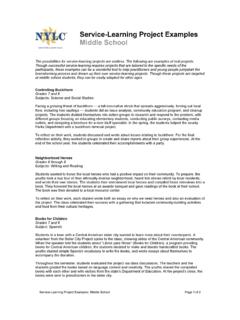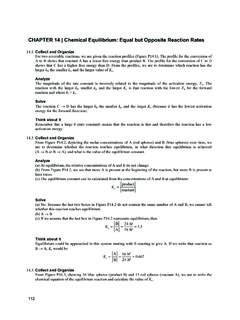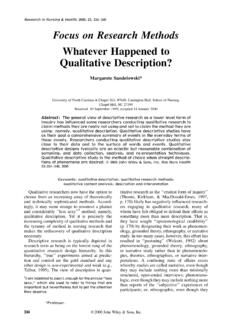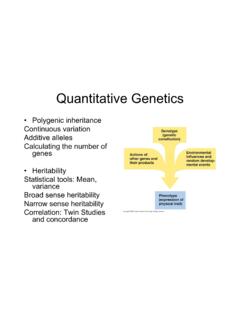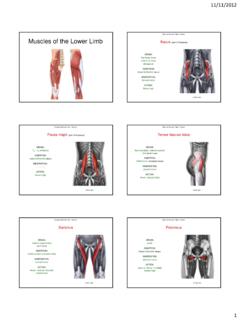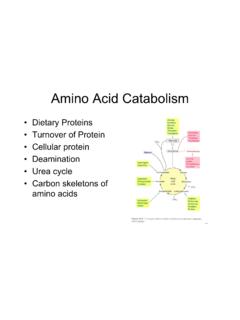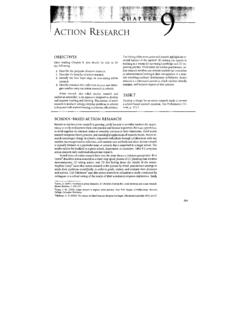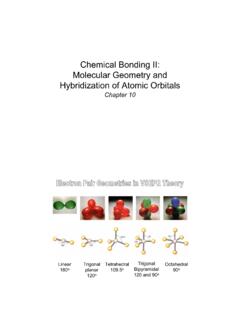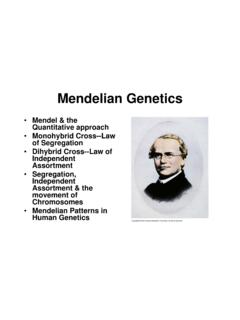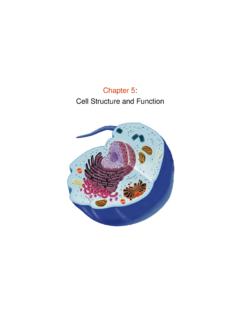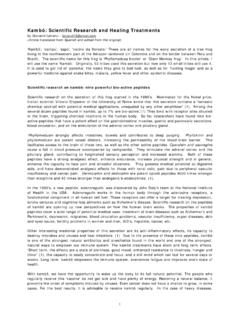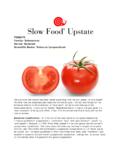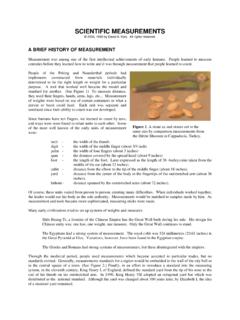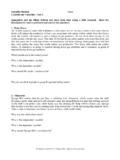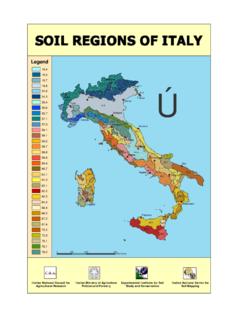Transcription of Scientific Principles - WOU Homepage
1 1 Scientific Principles Biology is a Scientific discipline All Scientific inquiry is based on a small set of assumptions or Principles : Natural causality Uniformity in space and time Similar perception2 Natural Causality Historical approaches to studying life1. A belief that some events happen through supernatural forces ( the actions of Greek gods).2. A belief that all events can be traced to natural causes that we can comprehend (natural causality). Corollary: Evidence gathered from nature has not been deliberately distorted to fool Laws Apply Everywhere Natural laws are uniform in space and time ( uniformity ).
2 This principle is key tounderstanding biologicalevents ( evolution) thatoccurred before humansrecorded Perceptions Assumption that all human beings perceive natural events in fundamentally the same way. Common perception allowsus to accept observations ofother humans as Common perception is usually not found in appreciation of art, poetry, and music, nor between cultures or religious beliefs. Value systems are subjective. Science requires objectivelygathered PerceptionsThe Scientific Method Scientific inquiry is a rigorous method for making observations The Scientific Method for inquiry follows 4 Scientific Method1.
3 Observation of a phenomenon Subsequent development of Formulation of a hypothesis A supposition that explains an observed phenomenon, leading to Testing through experimentation Additional controlled Development of a conclusion Evaluation of hypothesis in light of experimental Scientific MethodKnowledge!The Scientific Method Scientific experimentation tests the assertion that a single variablecauses a particular observation. The experiment must rule out the influence of other possible variables on therecorded Scientific Method Controlsare incorporated into experiments.
4 Controlskeep untested variables constant. The method is illustrated byFrancesco Redi s Scientific MethodThe Scientific Method6 The Scientific MethodThe Scientific Method7 Application to Everyday Problems Assume you are late for an appointment and hurriedly try to start your car. 1. Observation: The car won t Hypothesis: the battery is to Everyday Problems83. Experimental design: Replace your battery with another and restart the to Everyday Problems4. Premature conclusion: The problem was a dead battery because the car starts when replaced with a different to Everyday Problems5.
5 Recognition of inadequate controls Did you attempt to start the car more than once? Was the battery cable on my original battery loose?Application to Everyday Problems96. Establishing a controla. Reinstall your old battery, check for tight cables, nowtry to start the If car stillfails to start on old battery, the only variablein this investigation nowis the effectiveness of the to Everyday Problems7. Making a better conclusion, based on controlled experiments Your battery was probably to Everyday Problems10 Limitations of the Scientific Method Can never be sure alluntested variables are controlled.
6 Conclusions based on the experimental data must remain tentative. Must think in terms of probability. Can never prove because ofrandom of the Scientific Method Results of experimentation must be communicated thoroughly and accurately to other scientists for repetition. Repetition by other scientists add verification that findings can be used as thebasis for further Is a Human Endeavor Human personality traits are part of real science . Scientists, like other people may be driven by pride, ambition, or fear. Scientists sometimes make mistakes. Accidents, lucky guesses, intellectual powers, and controversies with others contribute strongly to Scientific Is a Human Endeavor1.
7 In the 1920s, bacteriologist Alexander Fleming grew bacteria in cultures. 2. One of the bacterial cultures became contaminated with a Fleming nearly destroyed the culture when he noticed the mold (Penicillium) inhibited bacterial growth in the is a Human Endeavor4. Fleming hypothesized that the mold produced an antibacterial substance5. Further tests using broth from pure Penicilliumcultures lead to the discovery of the first antibiotic, is a Human Endeavor6. Fleming continued beyond a lucky accident with further Scientific investigation to a great Chance favors the prepared mind (Louis Pasteur)12 Scientific Theory A Scientific theorydiffers in definition from that of everyday usage.
8 Many people use the word theoryto mean hypothesis, and educated guess . Scientific Theory A Scientific theory is a general explanation for important natural phenomena. It is extensively and reproducibly tested. It is more like a principle or natural law ( the atomic, gravitational, and cell theories). If compelling evidence arises,a theory may be Is Based on Reasoning Inductive Reasoning Used in the development of Scientific theories. A generalizationis created from many observations. , the cell theory (all living things are made of one or more cells) arises from many observations that all indicate a cellular basis for Is Based on Reasoning Deductive Reasoning Generating hypothesesbased on a well-supported generalization (such as a theory).
9 , based on the cell theory, any newly discovered organism would beexpected to be composed of cells. Bad/Best Science Extreme Science Junk Science Advocacy Science Science Is Based on Reasoning SubjectiveScience The Scientific Method Science is the only self-correcting human institution, but it is also a process that progresses only by allowing itself to evaluate evidence and reject hypotheses. - Alan Sandage 14 The Scientific MethodQuestion:What are the steps in the Scientific process? The Scientific MethodQuestion:What is the definition of Life ?Defining Life Dictionary definition of lifeis: the quality that distinguishes a vital and functioning being from a dead body.
10 Living things are more than the sum of their parts; lifeis difficult to define. The complexity and ordered interactions of parts in living things gives rise to certain emergent What Are the Characteristics of Living Things? Living Things Acquire and UseMaterials and Energy Living Things Grow Living Things Reproduce Themselves Living Things as a Whole Have the Capacityto Evolve Living Things are Made of Cells Respond to Stimuli Must maintain relatively constant internal conditions (homeostasis)Characteristics of Life??Living Things Are Composed of Cells Living things are complex andorganized The cell theorystates that the cell is the basic unit of life.
